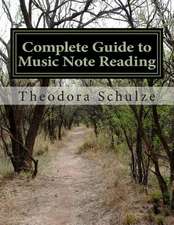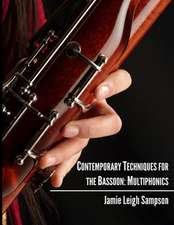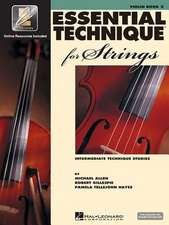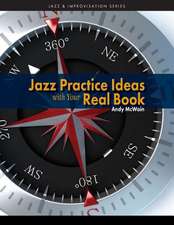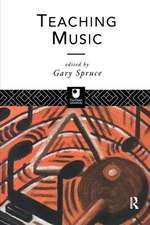The Provincial Music Festival in England, 1784–1914: Music in Nineteenth-Century Britain
Autor Pippa Drummonden Limba Engleză Paperback – 23 noi 2016
| Toate formatele și edițiile | Preț | Express |
|---|---|---|
| Paperback (1) | 469.34 lei 6-8 săpt. | |
| Taylor & Francis – 23 noi 2016 | 469.34 lei 6-8 săpt. | |
| Hardback (1) | 1054.71 lei 6-8 săpt. | |
| Taylor & Francis – 2 sep 2011 | 1054.71 lei 6-8 săpt. |
Din seria Music in Nineteenth-Century Britain
-
 Preț: 185.59 lei
Preț: 185.59 lei - 9%
 Preț: 934.96 lei
Preț: 934.96 lei -
 Preț: 330.20 lei
Preț: 330.20 lei -
 Preț: 489.26 lei
Preț: 489.26 lei - 18%
 Preț: 1057.89 lei
Preț: 1057.89 lei - 18%
 Preț: 1002.63 lei
Preț: 1002.63 lei -
 Preț: 469.34 lei
Preț: 469.34 lei -
 Preț: 469.34 lei
Preț: 469.34 lei -
 Preț: 469.34 lei
Preț: 469.34 lei -
 Preț: 469.34 lei
Preț: 469.34 lei - 18%
 Preț: 1005.80 lei
Preț: 1005.80 lei -
 Preț: 469.34 lei
Preț: 469.34 lei - 17%
 Preț: 338.33 lei
Preț: 338.33 lei - 31%
 Preț: 764.62 lei
Preț: 764.62 lei -
 Preț: 469.34 lei
Preț: 469.34 lei -
 Preț: 436.14 lei
Preț: 436.14 lei - 25%
 Preț: 823.99 lei
Preț: 823.99 lei - 18%
 Preț: 1061.06 lei
Preț: 1061.06 lei -
 Preț: 489.26 lei
Preț: 489.26 lei - 18%
 Preț: 1063.73 lei
Preț: 1063.73 lei - 26%
 Preț: 850.99 lei
Preț: 850.99 lei -
 Preț: 469.34 lei
Preț: 469.34 lei -
 Preț: 469.34 lei
Preț: 469.34 lei - 13%
 Preț: 338.33 lei
Preț: 338.33 lei - 17%
 Preț: 338.33 lei
Preț: 338.33 lei - 18%
 Preț: 1015.26 lei
Preț: 1015.26 lei -
 Preț: 469.34 lei
Preț: 469.34 lei - 18%
 Preț: 1058.38 lei
Preț: 1058.38 lei - 30%
 Preț: 769.55 lei
Preț: 769.55 lei - 18%
 Preț: 1114.70 lei
Preț: 1114.70 lei - 18%
 Preț: 1062.62 lei
Preț: 1062.62 lei - 18%
 Preț: 1061.06 lei
Preț: 1061.06 lei
Preț: 469.34 lei
Nou
Puncte Express: 704
Preț estimativ în valută:
89.84€ • 97.62$ • 75.51£
89.84€ • 97.62$ • 75.51£
Carte tipărită la comandă
Livrare economică 21 aprilie-05 mai
Preluare comenzi: 021 569.72.76
Specificații
ISBN-13: 9781138260580
ISBN-10: 1138260584
Pagini: 320
Dimensiuni: 156 x 234 x 24 mm
Greutate: 0.45 kg
Ediția:1
Editura: Taylor & Francis
Colecția Routledge
Seria Music in Nineteenth-Century Britain
Locul publicării:Oxford, United Kingdom
ISBN-10: 1138260584
Pagini: 320
Dimensiuni: 156 x 234 x 24 mm
Greutate: 0.45 kg
Ediția:1
Editura: Taylor & Francis
Colecția Routledge
Seria Music in Nineteenth-Century Britain
Locul publicării:Oxford, United Kingdom
Cuprins
Contents: Introduction; Part I Chronological Survey: 1784-1810: a tradition established; 1810-1830: the early 19th century festival; 1830-1850: the Mendelssohn era; 1850-1870: consolidation - the mid-century and beyond; 1870-1890: supporting English composers; 1890-1914: the shadow of war. Part II Themes and Aspects: Performers, performance practice and the press; Ambience, logistics and finance; Programmes and commissioning; The festival orchestra; The festival chorus; Social history; Postscript: the wider picture; Select bibliography; index.
Notă biografică
Dr Pippa Drummond was educated at St Hugh's College, Oxford, UK, where she took the degrees of MA, BMus and D.Phil. After a number of years as a Junior Research Fellow and Director of Music at St Hugh's, she was appointed to a Lectureship at Sheffield University. After a break from academic life to bring up a family and pursue a professional flute-playing career Drummond spent several years as Head of Woodwind at Trent College. Drummond is the author of The German Concerto: Five Eighteenth-Century Studies (1980).
Recenzii
'Here in Ashgate's 'Music in 19th-Century Britain' series is a fascinating volume that should be of interest to all lovers of Elgar's music... a book that not only provides a succinct musical history of the English provincial musical festival but that places it within the social and economic setting of the 19th century.' Elgar Society Journal 'Those of us who enjoy these festivals today will be fascinated by Drummond’s history.' British Institute of Organ Studies
Descriere
Dr Pippa Drummond argues that festivals represented the most significant cultural events in provincial England during the nineteenth century and emphasizes their particular importance in the promotion and commissioning of new music. Drawing on material from surviving accounts, committee records, programmes, contemporary pamphlets and reviews, Drummond shows how the festivals responded to and reflected the changing social and economic conditions of their day.




